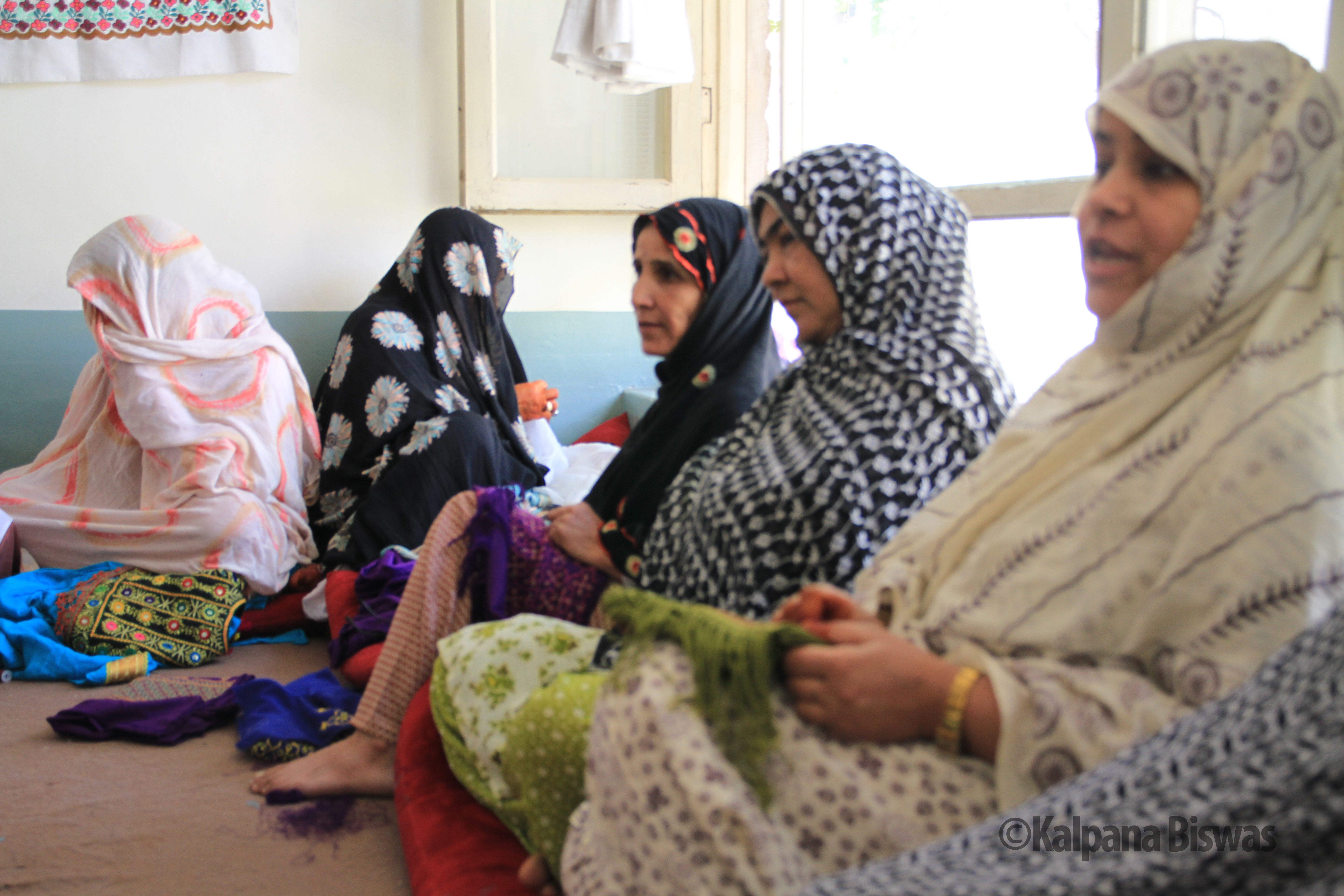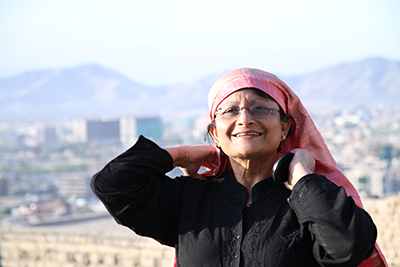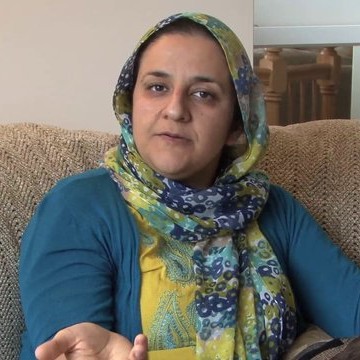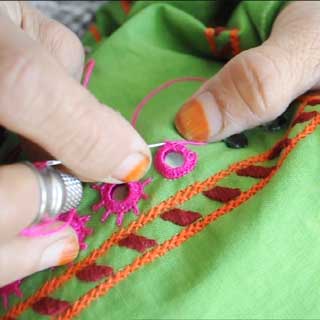The seamstresses in Kandahar fall silent as the music from a cell phone is interrupted by breaking news. They had heard four blasts in the distance earlier. Car bombs? Suicide bombers? Controlled military detonations? They listen anxiously. The newscaster reports suicide bombings in another province, and in Pakistan; no mention of the blasts. The music resumes, but the women remain deeply unsettled.
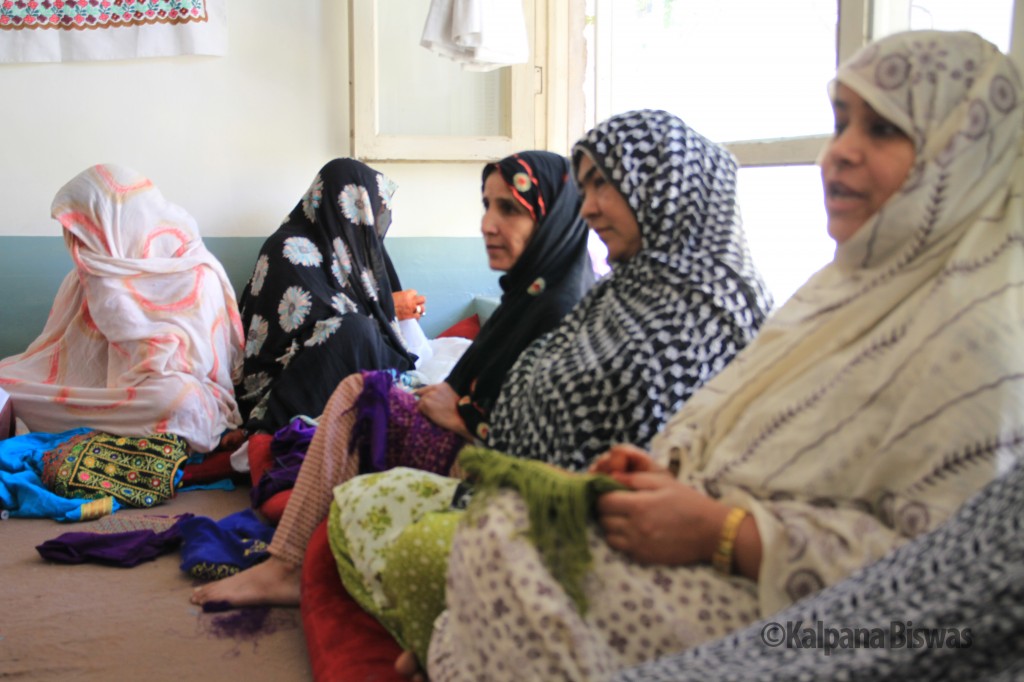
Bibi Rahella (not real names), 30, a widow with three children, sews at a cooperative funded by the US Agency for International Development (USAID). She has no memories of playing or studying in her childhood; instead, of hiding, always hiding, to escape bombs and bullets. “Ever since I was a child there was a war going on. I don’t remember specifically which year, or which group was fighting which. I remember a lot of military tanks going by, always rockets and fighting. And we were moving a lot,” she says.
Chronic terror, disease, death and displacement have shattered the lives of these women. Family members and friends vanish without warning – to different locations to wait out gun battles; to cities far from villages where the fighting is fiercest; to Pakistan or Iran for refuge or medical treatment. Young males disappear to escape arrests or conscription, leaving the women defenseless to feed their children.
Last summer, I was in Afghanistan for several weeks interviewing and filming civilians to document the effects of war on everyday life. Most men, women and children I met were adrift, yet frozen in time –waiting to feel safe again; waiting to take control of their lives again. In their eyes, by failing to provide them with security and peace, to guarantee the safety of their children, the US had failed and lost their trust – as had the Karzai government.
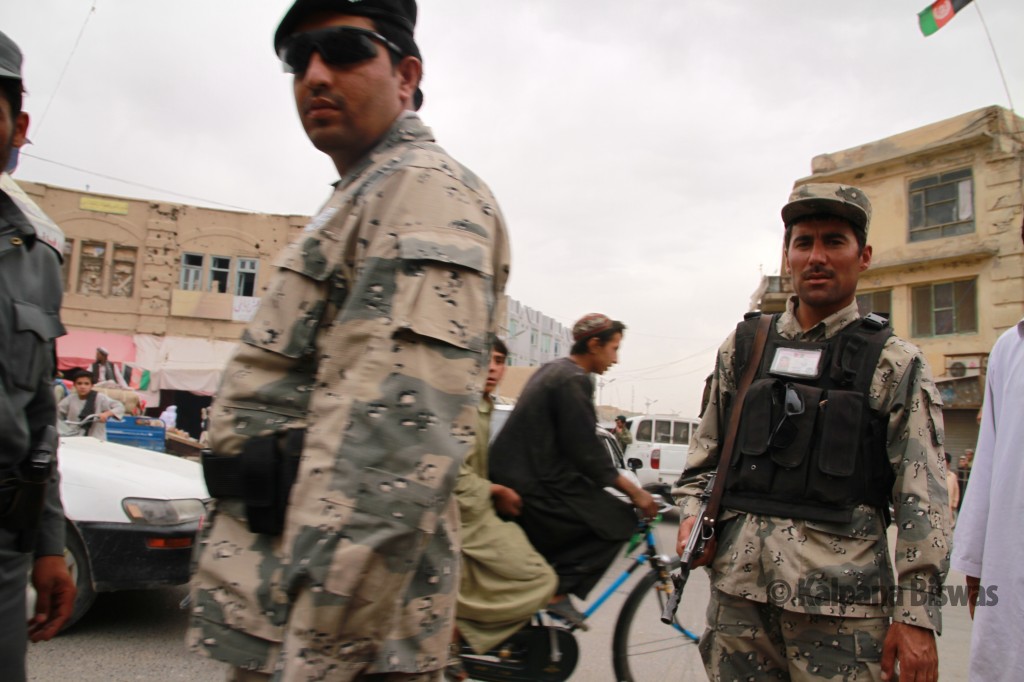
Without a security infrastructure, the women and children have very few options. They speak of undergoing unimaginable hardships and abuse to remain bonded to the male members of their extended families — the only providers and protectors to whom they can turn. Without a functioning government or the checks and balances of a rooted community, the men encounter few judicial or social deterrents to modulate abusive or criminal behavior.
Khanungul, now 45, was sold by her stepmother to her neighbor at age 5, and married to the family’s son by age 11. With adulthood, the husband drifted into drugs, baccha baazi (pedophilia involving pre-pubescent boys), severe domestic abuse and neglect, of herself and her 13 children. This was under the Taliban; she had no legal recourse. In 2006, when the Canadian forces mounted a major offensive in Kandahar, her husband and married son were mistaken for Taliban militants and shot dead. No compensation was offered.
Since 2001, the international community has earmarked millions of dollars to fund community programs — such as the cooperative in Kandahar — to improve the lives of the women. Bibi Rahella has broken cultural taboos and brought her young daughter to work. At 13 years, her daughter has blossomed into a master seamstress. Khanungul, too, has been saved by the co-op: for the first time her young sons and daughters are enrolled in school. But the bombs and explosives continue.
In recent days President Karzai has refused to sign a security pact with the US, initiated secret talks with the Taliban, and released sixty-five militants. Last week a law passed both houses of the Afghan Parliament (which President Karzai has ten days to ratify) barring family members from testifying against perpetrators of domestic abuse, including murder. Such developments, poised to reverse the gains of the past decade as the US troops withdraw, have sent shock waves through the women’s movement.
Frustrated by President Karzai, USAID has put some funding on hold, including to the co-op that employs Khanungul and Bibi Rahella. For the women, however, their rights pale against the bombs. “When Mullah Omar was leading this country, he was one blind man and yet he had full control over the entire country with no assistance from the outside, and we were at peace,” says Khanungul. “Now with 40 nations here, America, Germany, France, and police at every street, how is it possible that this cannot be fixed?” Faced with the daily barrage of bombings and dying children, the past with Mullah Omar has begun to look rosy.
Kalpana Biswas is a documentary filmmaker based in Pittsburgh and Artist in Residence at AlphaLab Gear, a hardware and robotic startup accelerator. Her documentary film “Jewels of Kandahar” is in post-production. She can be contacted at kb@earthspringmedia.com. For more information: www.jewelsofkandahar.com.

